Speakers and Chairs

Alzheimer’s Disease Digital Biomarker Discovery: Framingham Cognitive Aging and Dementia Study
Presenter
Rhoda Au, PhD
Boston University
Dr. Rhoda Au is Professor of Anatomy & Neurobiology, Neurology and Epidemiology at Boston University Schools of Medicine and Public and is a Senior Fellow at the Institute for Health Systems Innovation and Policy at the Questrom School of Business. She also serves as Director of Neuropsychology at the Framingham Heart Study. She has been developing multi-sensory brain health monitoring platform that is customizable, technology agnostic, and scalable. Her objectives include transitioning the platform from reliance on high friction technologies to low friction ones and developing broad based data sharing resources to accelerate data science/AI driven discovery of digital biomarkers. Her research seeks to move the primary focus of health technologies from precision AD medicine to a broader emphasis on precision brain health.
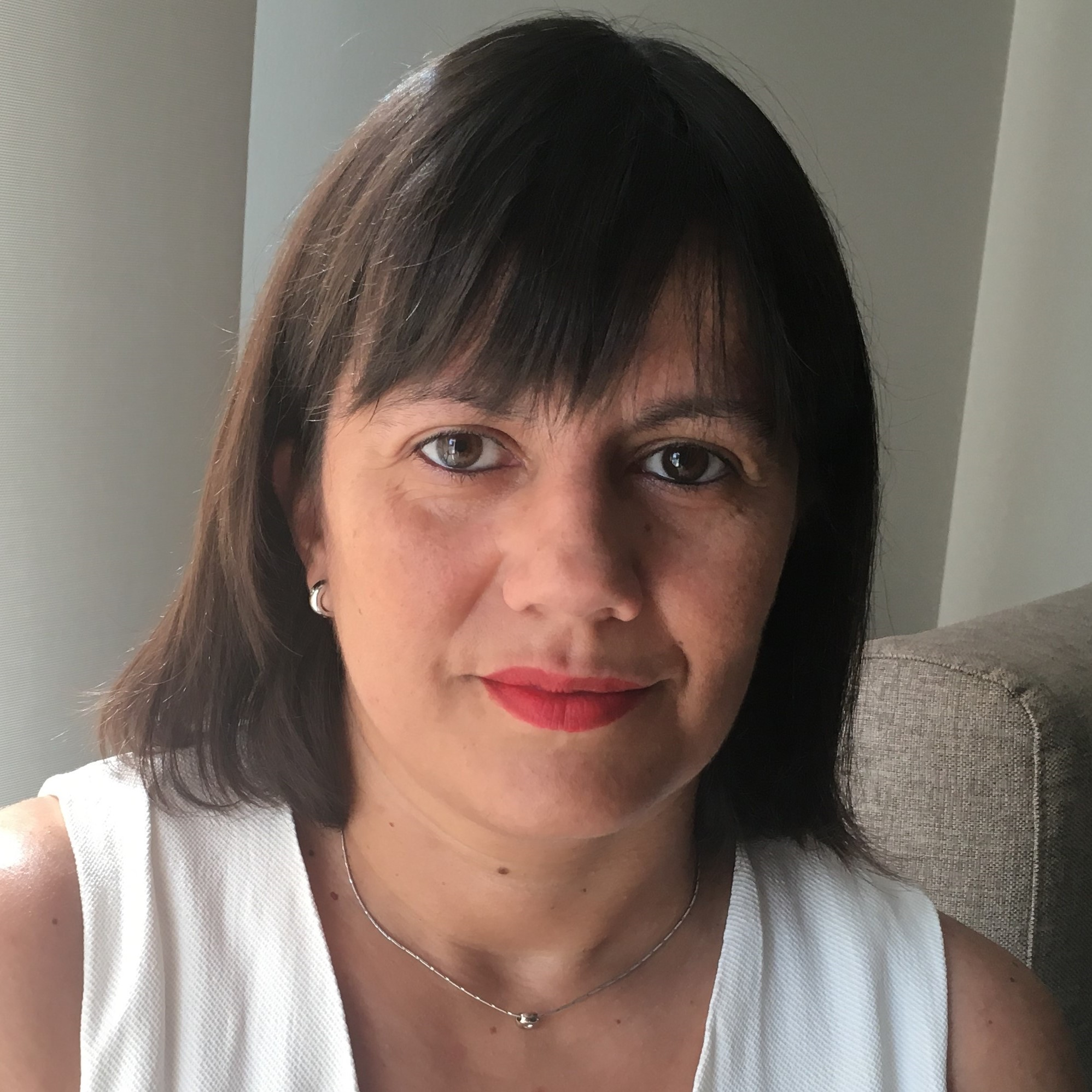
Mitochondrial Epigenetics, a Tool for An Early AD Diagnosis
Presenter
Marta Barrachina, PhD
ADmit Therapeutics
Dr. Marta Barrachina is the founder and CEO of ADmit Therapeutics S.L., a spin off from the Bellvitge Biomedical Research Institute (IDIBELL, Barcelona, Spain). A principal investigator for fifteen years, she has built a solid scientific background in epigenetics of neurodegenerative diseases like Alzheimer’s disease and other dementias.
Dr. Barrachina holds six patents and had authored more than 35 scientific articles in the neuroscience field. She holds a PhD in Biochemistry from the University of Barcelona and an Executive MBA from the Ramon Llull University.
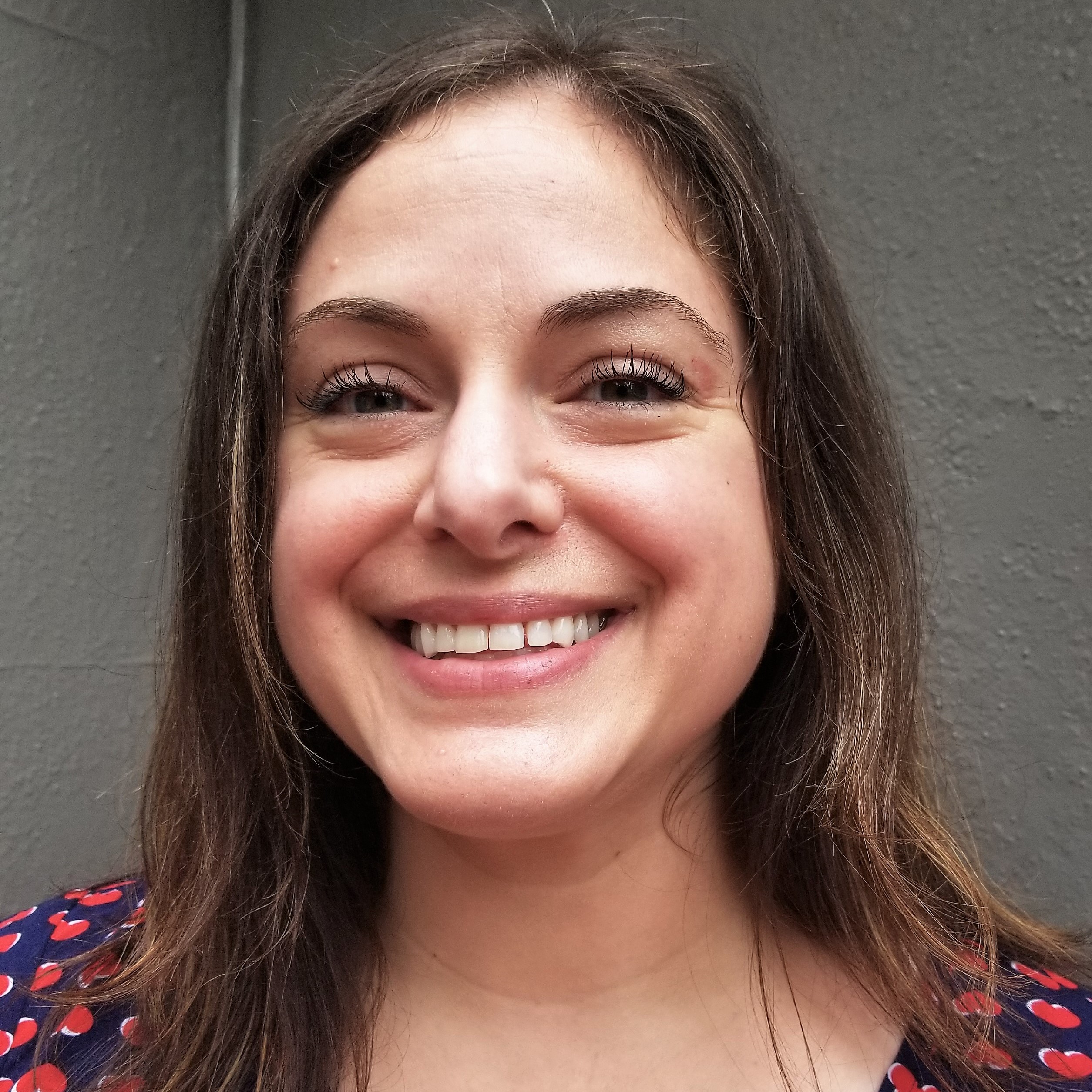
SESSION III
Digital and Ocular Biomarkers
CO-CHAIR
Nicole Bjorklund, PhD
Alzheimer’s Drug Discovery Foundation
Nicole Bjorklund, PhD, manages the Diagnostics Accelerator Initiative working closely with our partners at Gates Ventures. In this capacity, she proactively engages promising biomarker programs and supports the development of these biomarkers for use in clinical practice for Alzheimer’s disease and related dementias. She also supports the management of our core Request for Proposals by providing scientific review of biomarker proposals and tracking program progress.
Dr. Bjorklund came to the ADDF from Albert Einstein College of Medicine where she was an Assistant Research Professor and Operations Director of the Biomarker and Biorepository core facilities. Her laboratories, as part of the CTSA-supported Institute of Clinical and Translational Research, supported clinical research studies at Einstein and Montefiore Medical Center. She remains an adjunct faculty member at Einstein. Dr. Bjorklund completed postdoctoral training at University of Texas Medical Branch, where she investigated molecular resistance mechanisms to Alzheimer’s disease. She earned a doctorate in biochemistry at Washington State University and a bachelor’s degree in chemistry from Boise State University. Dr. Bjorklund has authored numerous peer-reviewed publications and is a member of the Society for Neuroscience and New York Academy of Sciences.
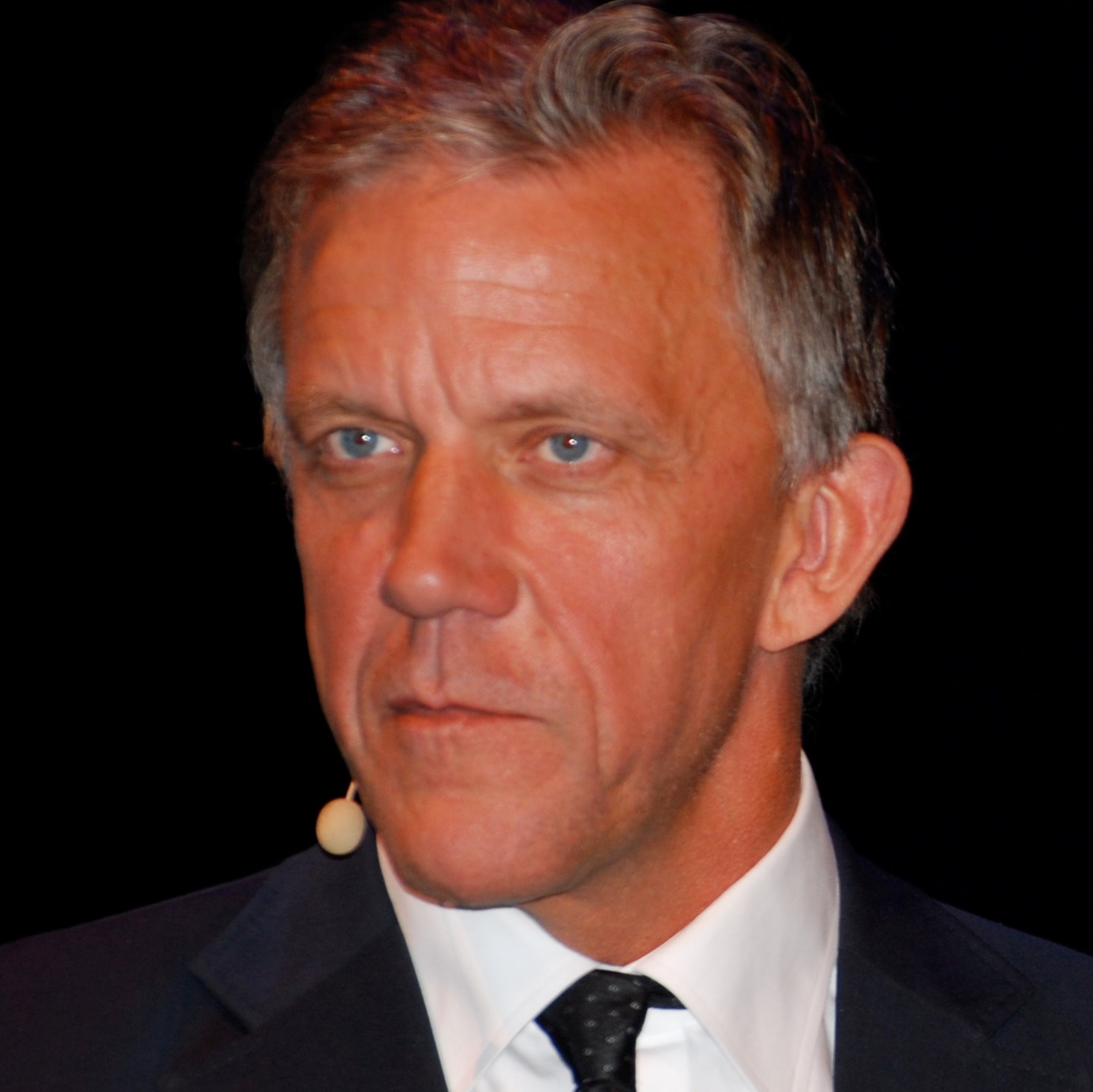
Tau and p-tau as Alzheimer Biomarkers - Assays, Methodological Aspects and Clinical Performance
Kaj Blennow, MD, PhD
Dr. Kaj Blennow obtained his medical degree (MD) in 1984, his PhD in Medical Science in 1990 and holds a Specialist Competence in both General Psychiatry and in Clinical Chemistry.
Dr. Blennow holds the Torsten Söderberg Professorship in Medicine and the Royal Swedish Academy of Sciences since 2015 and was appointed University Hospital Senior Physician in 2011. He is a professor and academic chair of the Clinical Neurochemistry department at the University of Gothenburg as well as Senior Consultant and Head of the Clinical Neurochemistry Lab at Sahlgrenska University Hospital.
The major research areas are cerebrospinal fluid biochemical markers, clinical proteomics, and the neurochemical pathogenesis of Alzheimer’s disease and other brain disorders.
Blennow has published more than 1200 original research papers and 150 review articles in peer-reviewed journals, and has an H-index of 133.
He has received a number of scientific awards, such as the 2019 Bengt Winblad Award, the 2013 International Foundation for Research in Alzheimer’s Disease (IFRAD) European Grand Prix in Research, Paris, the Henry Wisniewski Lifetime Achievement Award in Alzheimer’s Disease Research (2011), the ECNP Clinical Research Award (2010), the Alois Alzheimer Research Award (2001), and many more.

Findings from the RetiSpec Hyperspectral Imaging System in Individuals with Preclinical and Early Alzheimer's Disease: A Preliminary Report
Presenter (with Eliad Shaked)
Catherine Bornbaum, PhD
Dr. Catherine Bornbaum is a health scientist and business leader with more than a decade of experience leading large-scale health research operations. In her role as Head of Clinical Operations and Partnerships at RetiSpec, Dr, Bornbaum leads the planning, directing and evaluating of clinical research activities. She works collaboratively with key opinion leaders, investigators, and stakeholders to advance a rigorous and strategic research program in support of the commercialization of RetiSpec’s Alzheimer disease diagnostic system.
In 2019, she was named one of the 100 Best & Brightest Executive MBAs globally by Poets & Quants.

CONCLUDING REMARKS
EVENT CO-HOST
Niranjan Bose, PhD
Gates Ventures
Dr. Niranjan Bose is currently the Managing Director (Health & Life Sciences Strategy) at Gates Ventures LLC, where he serves as the Science Advisor to Mr. Bill Gates. Prior to joining Gates Ventures in August 2014, he was the Chief of Staff to the President of the Global Health Program at the Bill & Melinda Gates Foundation.
He was with the Gates Foundation from 2007 through 2014, which included a few years with their Enterics and Diarrheal Diseases (EDD) program strategy team, where he was responsible for managing a portfolio of investments, which included clinical development of enteric vaccines (rotavirus, cholera, enterotoxigenic E coli and shigella).
Prior to joining the Bill & Melinda Gates Foundation, he was with Strategic Decisions Group ( and SDG Life Sciences), where he was a Senior Consultant and assisted clients in the pharmaceutical and biotechnology industries with strategy development, company valuations, portfolio management frameworks, revenue forecasting, and competitive assessments.
Niranjan holds a PhD in biochemistry from Dartmouth College and an MS in biological sciences and BS in pharmaceutical sciences from Birla Institute of Technology and Science, Pilani, India. He also received the Business Bridge Diploma from the Tuck School of Business at Dartmouth.
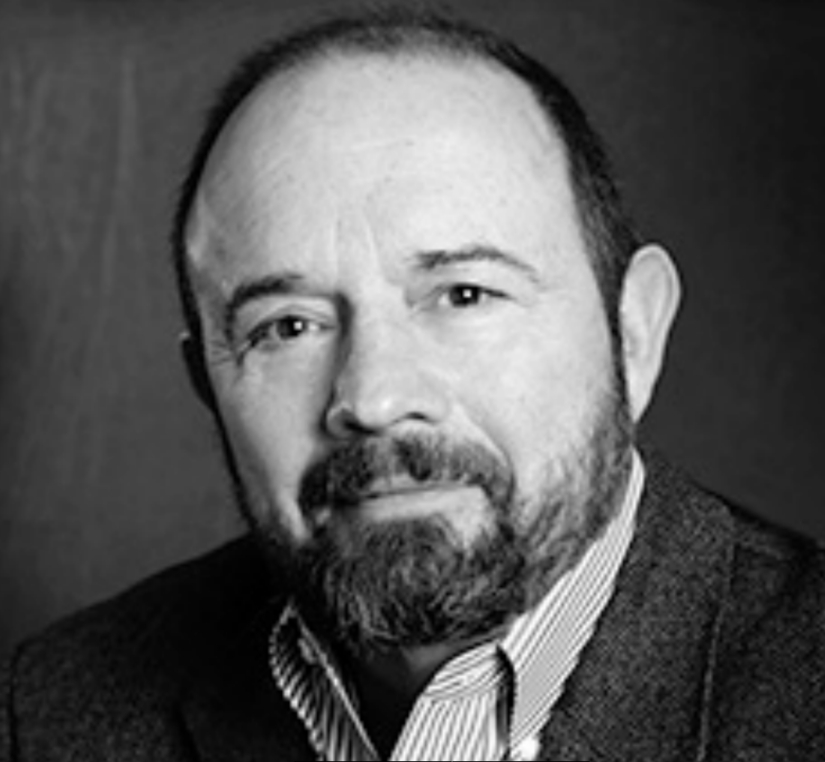
SESSION I
Ocular and Emerging Protein Biomarkers of ADRD, Biomarkers for FTD
CO-CHAIR
Robert Dean, MD, PhD
Robert A. Dean Consulting, LLC
Dr. Robert Dean completed a toxicology/pharmacology doctorate and medical training at Indiana University, an internship and residency in anatomic and clinical pathology at Medical Center Hospital of Vermont and a medical fellowship in chemical pathology at the Mayo Clinic. He served as Director of Chemical Pathology at Indiana University School of Medicine providing laboratory services related to adult and pediatric clinical chemistry, specialty endocrinology, neonatal screening, clinical toxicology, metals and vital function laboratories. His academic research focused on drugs-of-abuse (alcohol, cocaine and heroin) metabolism and toxicity.
Dr. Dean subsequently served for 21 years as a clinical research pathologist and director Diagnostics & Experimental Medicine at Eli Lilly & Company. His industry research focused on biomarker discovery and development with application to translational research and diagnostics development. In this capacity, he broadly supported phase I through IV clinical drug development in the use of biomarkers in clinical safety assessment and to explore target engagement, target-related pharmacology, impact on pathophysiology and therapeutic tailoring. This work supported drug development for multiple cardiovascular and endocrine disorders, selected infectious and oncological diseases, and numerous pain, psychiatric and neurodegenerative disorders with special emphasis on Alzheimer’s Disease.
Dr. Dean currently provides clinical pathology-related consulting services through Robert A. Dean Consulting, LLC.
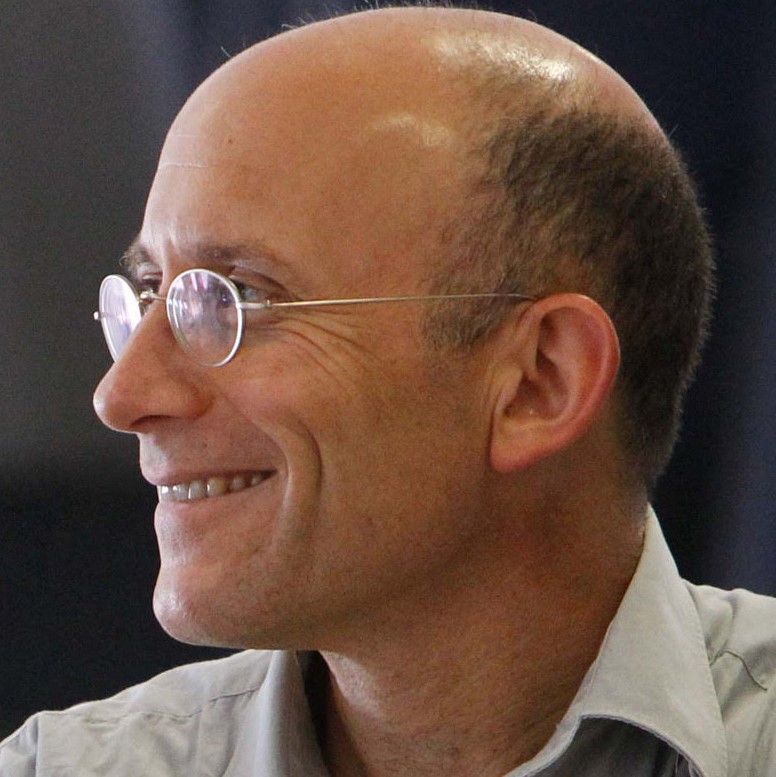
Liquid Biopsy to Detect Cell Death in Alzheimer’s Disease
Presenter
Yuval Dor, PhD
Hebrew University
Dr. Yuval Dor is a professor of biology at the Hebrew University-Hadassah Medical School. He earned his PhD in vascular biology at the Hebrew University in 2001 with Prof. Eli Keshet, and trained as a post-doc at Harvard University with Doug Melton until 2004. His lab studies postnatal tissue dynamics: the molecular mechanisms by which cell regenerate and die.
Much of his work focuses on pancreatic beta-cells in the context of diabetes, as well as on pancreatic cancer. In recent years he has developed a novel method to study cell death in humans, using methylation signatures of cell-free circulating DNA. This new type of liquid biopsy opens a minimally-invasive window into tissue dynamics in health and in pathologies including cancer, infection and neurodegeneration.

Smartphone-based Learning and Memory Assessment (LilaTM): Beta Application Development
Presenter
Chris Edgar, PhD
Cogstate
Dr. Chris Edgar has an extensive background in drug development and clinical trials methodology, and is an expert in the development, validation and application of clinical outcome assessments (COAs). He has held positions as scientific director at Cognitive Drug Research Ltd, senior clinical lead at Bracket, principal scientist at Roche, and is currently senior vice president clinical science at Cogstate.
Dr. Edgar has worked across all phases of clinical development and in multiple therapy areas, specializing in neuroscience, cognition and performance-based outcome assessments. Dr. Edgar has a particular interest in research topics concerning the application of cognitive assessments to clinical trials, establishing definitions for meaningful change, and related regulatory science issues.
Dr. Edgar has published more than 50 peer-reviewed articles. He recently presented on the topic of establishing the meaningfulness of treatment effects in Alzheimer’s disease drug development at the 2018 CTAD meeting and has been involved with several initiatives and publications related to clinical meaningfulness in the neurosciences. This includes working group membership of the: C-PATH cognition working group; ISPOR performance outcome (PerfO) assessments task force; AD PACE study design workstream; ECNP clinical outcomes working group; and ISCTM cognitive assessment in Alzheimer’s disease working group.
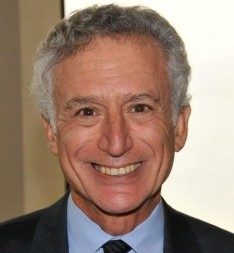
Welcome and Introductory Notes
EVENT CO-HOST
Howard Fillit, MD
Alzheimer’s Drug Discovery Foundation
Dr. Howard Fillit is ADDF’s Founding Executive Director and Chief Science Officer. He is a geriatrician, neuroscientist, and innovative philanthropy executive, who has led the ADDF since its founding. Dr. Fillit has held faculty positions at The Rockefeller University, the SUNY-Stony Brook School of Medicine and the Cornell University School of Medicine. In 1987, he joined the Mount Sinai School of Medicine, where he is a clinical professor of geriatric medicine and palliative care, medicine and neuroscience. Dr. Fillit also maintains a limited private practice in consultative geriatric medicine with a focus on Alzheimer’s disease and related dementias.
He has authored or co-authored more than 300 publications and is the senior editor of Brocklehurst’s Textbook of Geriatric Medicine and Gerontology. Dr. Fillit is the recipient of many awards and honors including the Rita Hayworth Award from the Alzheimer’s Association. He is a fellow of the American Geriatrics Society, the American College of Physicians, the Gerontological Society of America and the New York Academy of Medicine. Dr. Fillit earned his bachelor of arts in neurobiology cum laude from Cornell University and his medical degree from the SUNY-Upstate Medical University.
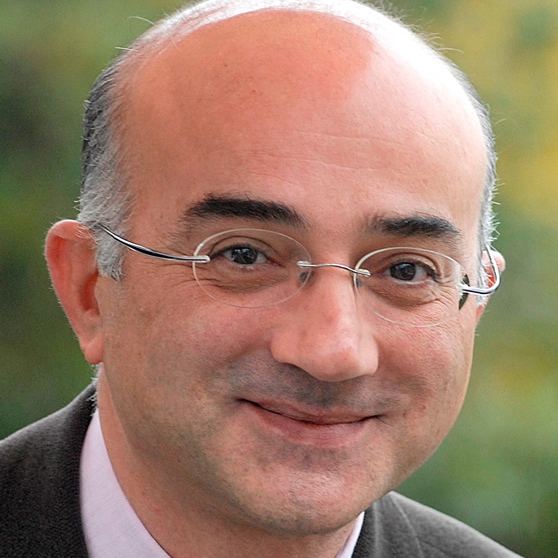
Validation of a Rapid Non-invasive Diagnostic Test to Predict MCI and early Alzheimer’s Disease
Presenter
Hüseyin Firat, MD, PhD
Amoneta
Dr. Hüseyin Firat is a pediatrician who practiced as Associate Professor in Paris University Hospitals. Following his PhD in Immunology at Pasteur Institute, he was accredited as research director, in charge of the Immunology of Gene Therapy Laboratory at Généthon (Paris). In 2002, he joined the Biomarker Department of Novartis Pharma, where he headed biomarker sections worldwide, and was a member of Novartis Pharma Innovation team in Basel, Switzerland.
His research activities generated several patented discoveries, based on which several biotech companies have been created. In 2007, he has been accredited as University Professor in France and founded Firalis S.A. in 2008, and Amoneta in 2014. As the founder of Firalis Group, he has been the laureate of the national award from French Ministry of Higher Education and Research and OSEO (2009). Since then, he has served as the CEO and CSO of Firalis. Under his leadership, the Firalis Group received numerous recognitions and prizes for its innovative R&D projects, among many others, including “The Enterprise of the Future” awarded by Ernst & Young and L’Express, in 2014.
Dr. Firat initiated and coordinated several European consortia on clinical biomarker qualification such as SAFE-T, CARDIO-SAVE, MIPROG, RABIOPRED, ADKIT, ADCHIP, ADDIA, and MEMORYLINC projects (the MemoryLinc Project received the official support and investment from the ADDF in 2019).

TABLOOD: A Biomarker Panel for Direct Assessment in Blood of Alzheimer’s Disease Patho-physiological Hallmarks
Presenter
Douglas Galasko, MD
University of California, San Diego
Dr. Douglas Galasko is board-certified in neurology, with special expertise in memory disorders, Alzheimer’s diseases, and unusual neurological conditions such as dementia with Lewy bodies and frontotemporal dementia.
He is associate director of the UC San Diego Shiley-Marcos Alzheimer’s Disease Research Center, and has carried out research into Alzheimer’s and related disorders for over 25 years. He has published over 200 scientific articles on diagnosis, risk factors, biological markers, and treatment of Alzheimer’s disease.
He has been in clinical practice at UC San Diego Health since 1990. His clinic offers comprehensive diagnostic testing, with access to brain imaging and comprehensive laboratory testing as needed, medical management and knowledge of community resources. Patients are also offered access to research opportunities, including potential new treatments.

SESSION II - Part I
Molecular Biomarkers of ADRD
CO-CHAIR
James Gallarda, PhD
Dr. James (Jim) Gallarda has a 20-year background in industry developing in vitro diagnostics at Abbott and Roche. He is experienced in blood screening infectious disease assay development, overseeing multiple teams developing immunodiagnostic & PCR systems for HIV-1, HIV-2, HCV, HBV and WNV.
Currently, Dr. Gallarda is Senior Program Officer at the Bill & Melinda Gates Foundation responsible for providing strategic and tactical guidance related to diagnostic efforts within the Foundation’s program strategy teams, with an emphasis in the tuberculosis and Ebola Dx initiatives, as well as in cross-cutting molecular technologies applicable to both developed and developing countries.
Prior to this, Dr. Gallarda was with Novartis Pharmaceuticals (in Cambridge MA) leading companion diagnostics program for assays used to assess the effectiveness of tyrosine kinase inhibitors for patients with CML.
Dr. Gallarda is also an independent consultant for various institutions having a focus in global health.
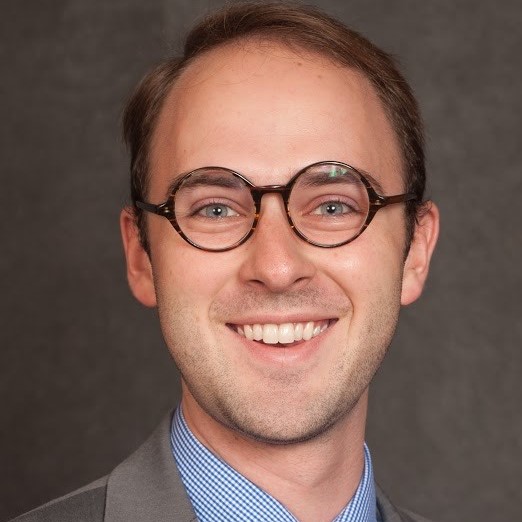
Plasma Aβ as a Predictor of Amyloid Positivity in Alzheimer’s Disease
Presenter (with Dr. Stephen Zicha)
Wesley Horton, MS
Foundation for the National Institutes of Health
Wesley Horton is a Scientific Project Manager for Neuroscience Research Partnerships at the Foundation for the National Institutes of Health. He manages the Biomarker Consortium Neuroscience Steering Committee (BC NSC), its various working groups, and a portfolio of projects, including the Plasma Aβ Project.
Prior to joining the FNIH, Mr. Horton worked for Georgetown University for four years as a Clinical Trial Manager for interventional Alzheimer’s disease studies and developed clinical research programs in Stroke, Neurosurgery, and Interventional Radiology. He also spent time working with the Henry M. Jackson Foundation managing a portfolio of international multi-center clinical trials to understand the natural history of HIV and HIV Associated Neurocognitive Disorder.
Mr. Horton received his Master’s in Clinical and Translational Research from Georgetown University with a focus on mechanistic and biomedical research.
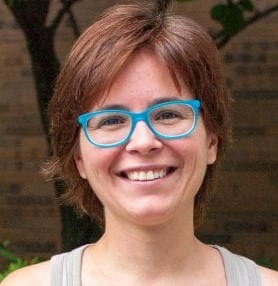
Plasma Cell-Free RNA as Alzheimer's Disease Non-invasive Biomarker
Presenter
Laura Ibanez, PhD
Washington University
Dr. Laura Ibanez graduated from the Autonomous University of Barcelona in with a B.S. in Biotechnology and another in Biochemistry with a high grade point average that allowed her to obtain a grad-student fellowship from the Government.
Dr. Ibanez joined the laboratory of Dr. Dalmau where she initiated a project to study the relationship between genetics of inflammatory pathways and the HIV-associated subclinical atherosclerosis. She then joined the laboratory of Dr. Cruchaga at Washington University in Saint Louis to lead the analyses of an international multi-center genetic study, the GENISIS (Genetics of Early Neurological Istability after Ischemic Stroke) Study. She also led the Parkinson’s disease project in the same lab.
Dr. Ibanez is now a junior faculty at Washington University. Her research interests are focused on finding blood-based molecular biomarkers to diagnose and follow-up neurodegenerative diseases.

SESSION II - Part 2
Digital Biomarkers of ADRD
CO-CHAIR
Lampros Kourtis, PhD
Circadic.io
Dr. Lampros Kourtis is a biomedical engineer that specializes in digital biomarkers. His main focus is passive signal collection and analysis from mobile and wearable devices, and applications in the chronic disease space. He has been working with ADDF, creating an AD harmonized, sharable speech sample repository that can be used by researchers to create diagnostic and monitoring applications. Currently, he is a cofounder and managing director at Circadic, a Boston based digital biomarker discovery startup. He is also a partner at Velocity.Partners, a seed stage VC firm investing in healthcare solutions.
Previously, Dr Kourtis has founded a couple of biomaterials VC backed startups leading them from concept to clinical application, Biomimedica (So San Francisco, CA) and Hyalex Orthopaedics (Lexington, MA). He also worked for Eli Lilly and Evidation Health. Moreover, he is an adjunct professor at Tufts School of Medicine (CTSI). He holds a PhD from Stanford University and a BEng in ME from Aristoteles University. He holds over 25 patents on biomaterials, medical devices, digital biomarkers and IoT solutions.
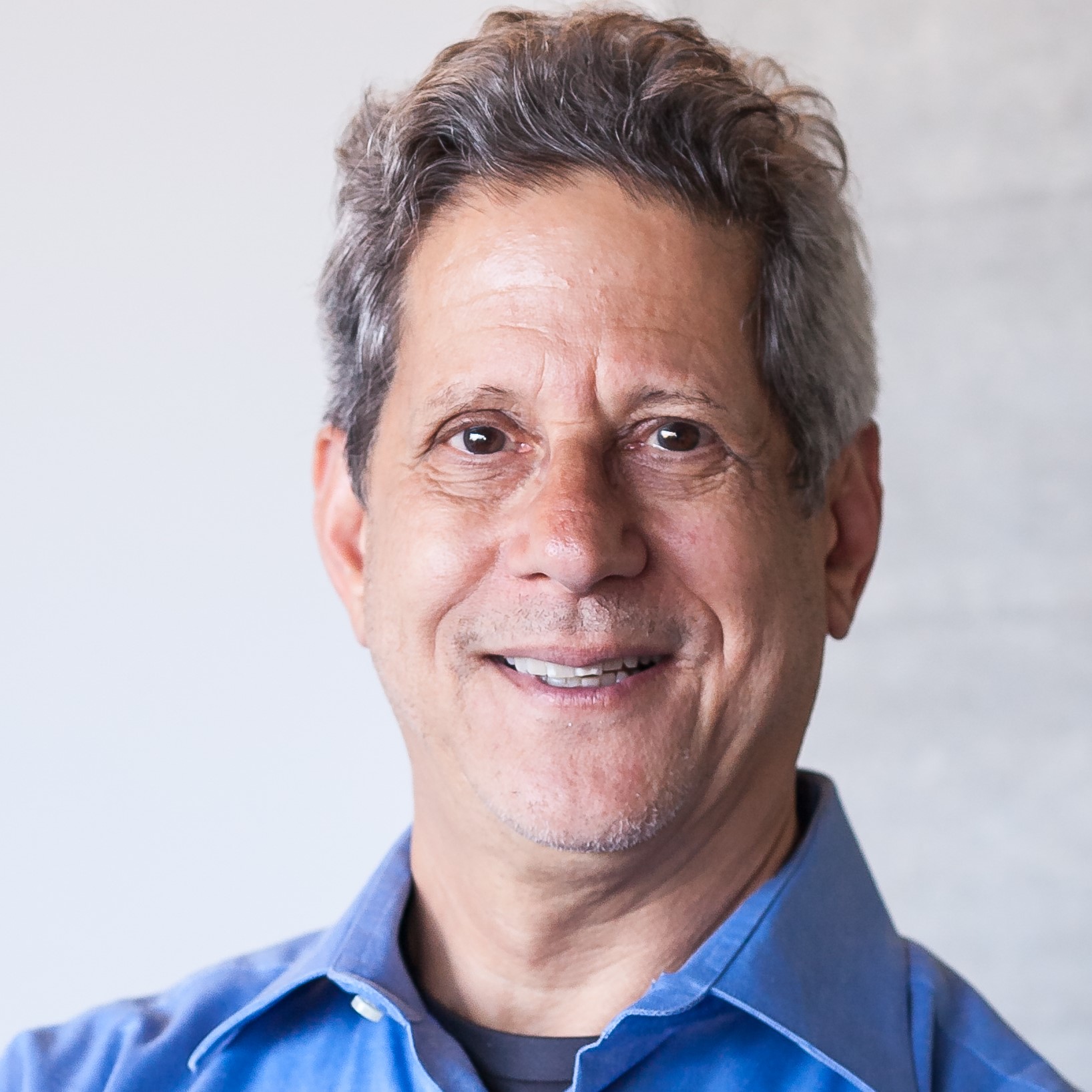
Protein Misfolding Cyclic Amplification (PMCA) Clinical Test for Detection of Aggregates of Misfolded α-Synuclein
Presenter
Russell Lebovitz, MD, PhD
Amprion
Dr. Russell Lebovitz worked for 15 years as a successful senior scientist and research physician in a variety of academic settings before transitioning to a second career focused on financial, operational and executive management of emerging technology companies. Between 1997 and 2003, he managed global projects in operations, marketing and finance for a number of Fortune 100 technology including Royal Dutch Shell, Enron, ABB, SprintNextel, AT&T Wireless, Johnson & Johnson, Merck, Compaq/HP, King Pharmaceuticals, and JPMorganChase. Since 2003, Russ has been a serial entrepreneur and active investor in life sciences projects involving protein diagnostics, imaging technology & image analysis, machine learning, drug development and medical devices.
Since 2005 Dr. Lebovitz has served as a life sciences venture partner and entrepreneur in residence with several different early stage funds in Silicon Valley and Southern California. Through these relationships, he has served as CEO of diagnostics, therapeutics and consumer healthcare companies including CSixty, Marval Biosciences, Skincential Sciences and Amprion. Dr. Lebovitz currently serves as CEO and Co-Founder of Amprion, where he oversees an extremely talented team focused on accurate and early diagnosis of Alzheimer’s, Parkinson’s and related neurodegenerative diseases. He has also served on the faculty of Baylor College of Medicine in Houston and The Fox Chase Cancer Center in Philadelphia, and currently serves on the Board of Directors for Skincential Sciences, Amprion, Ambra Biosciences and FP Complete and as a Venture Advisor for Bootstrap Labs.
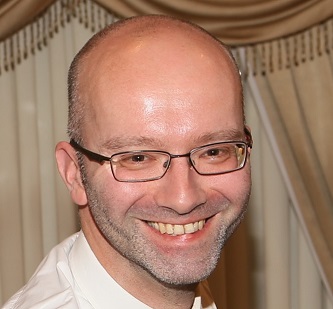
Delivering Novel Neuro-retinal Biomarkers for the Early Diagnosis of Alzheimer’s Disease
Presenter
Thomas MacGillivray, PhD
University of Edinburgh
Dr Tom MacGillivray is a Senior Research Fellow at the University of Edinburgh with more than 15 years’ experience facilitating clinical research that features optical imaging of the retina and computational analysis. This includes studies and publications on dementia, stroke, cardiovascular disease, MS, diabetes, kidney disease, and age-related cognitive change. In close collaboration with the University of Dundee, he co-ordinates an interdisciplinary initiative called VAMPIRE (Vascular Assessment and Measurement Platform for Images of the Retina; vampire.computing.dundee.ac.uk) in which the aim is efficient, semi-automatic analysis of retinal images and the pursuit of disease biomarker identification.
In addition, Dr MacGillivray runs a specialized research facility as part of the Edinburgh Clinical Research Facility (www.ed.ac.uk/clinical-research-facility) joint with Edinburgh Imaging group (www.ed.ac.uk/edinburgh-imaging) at the University of Edinburgh for medical image analysis. His team staffs a computer laboratory and ophthalmic imaging suite and provides expert support to investigators accessing data from a variety of imaging modalities including MR, CT, PET and ultrasound as well as optical imaging of the retina.
As a Principal Investigator in the Center for Clinical Brain Sciences (www.ed.ac.uk/clinical-brain-sciences) at the University of Edinburgh, MacGillivray leads a research program on retinal imaging and Alzheimer’s disease with a team that comprises PhD students and post-doctoral researchers with additional contributions from undergraduate student projects.
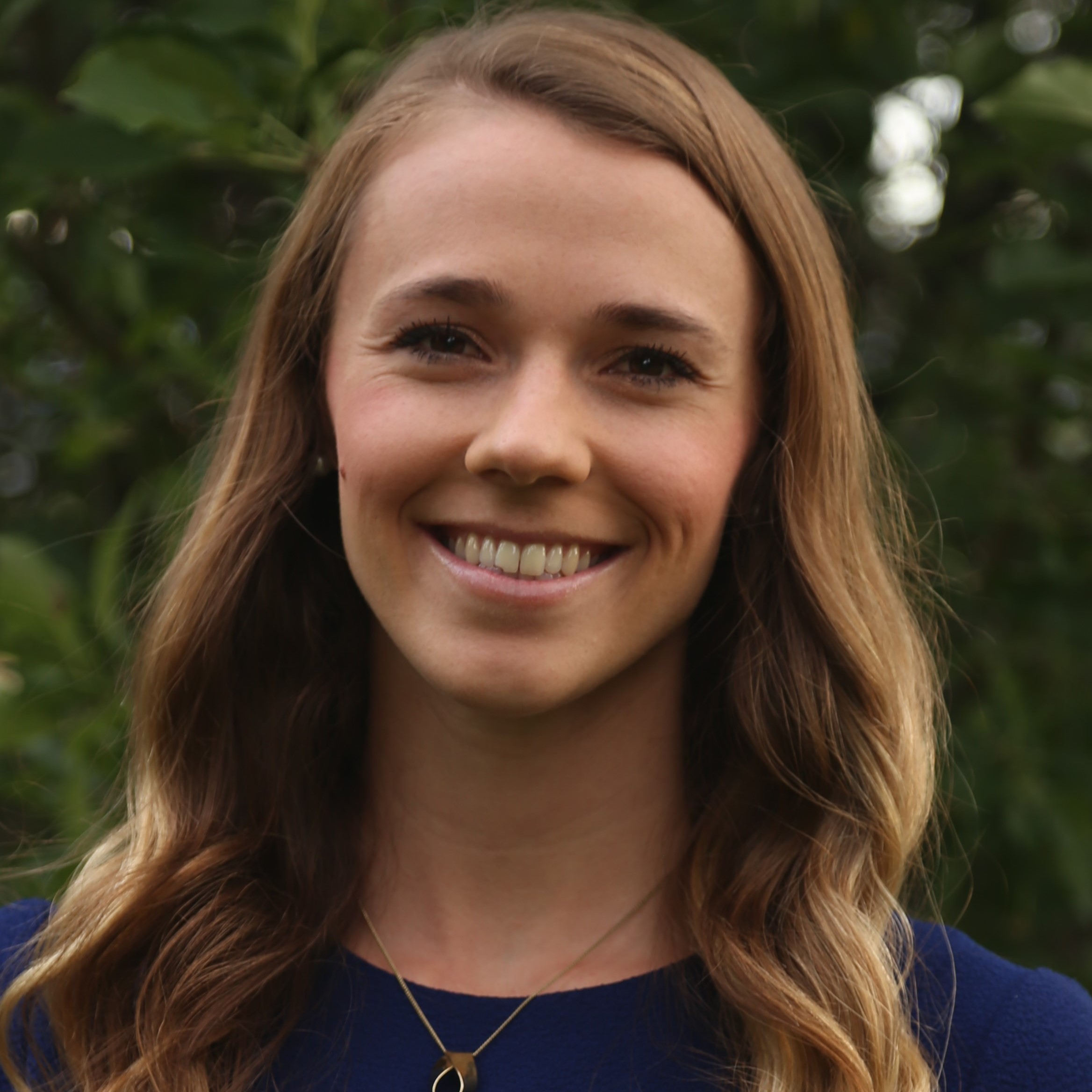
SESSION I:
PROGRAM COMMITTEE MEMBER
Kristina Malzbender, MPH cand.
Gates Ventures
Kristina Malzbender is currently an Associate Director of Health and Life Sciences at Gates Ventures, the private office of Mr. Bill Gates. At Gates Ventures, Ms. Malzbender manages a portfolio of philanthropic work, investments and research funding for Alzheimer’s disease and related dementias, with a focus on biomarkers, biosample access and biobanking, and clinical trials. Prior to joining Gates Ventures, she worked as a consultant at IQVIA, where she advised clients in the pharmaceutical and biotechnology industries on strategy development, portfolio planning and management, valuations, forecasting, pricing strategy, market access and business development.
Ms. Malzbender holds a BA in chemistry from Princeton University, and is currently pursuing a Masters in Public Health (MPH) at the Dartmouth Institute for Health Policy and Clinical Practice.
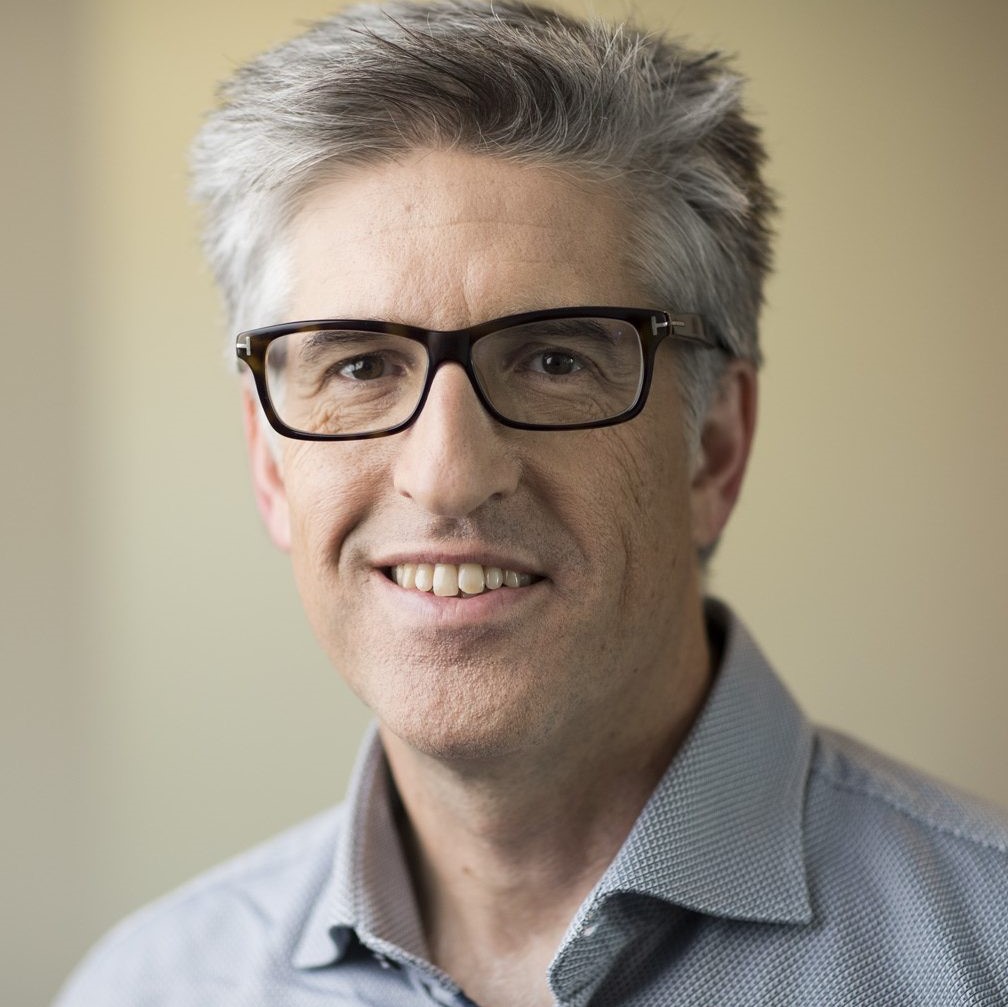
SESSION I
Ocular and Emerging Protein Biomarkers of ADRD, Biomarkers for FTD
CO-CHAIR
Tetsuyuki Maruyama, PhD
KPY Consulting
Dr. Tetsuyuki (Tetsu) Maruyama is an independent pharmaceutical and biotech consultant, based in Japan. He began his career as an academic neuroscientist, holding faculty positions at the University of Minnesota and Cardiff University before moving to industry. Dr Maruyama held leadership positions in CNS drug discovery for Merck Sharp and Dohme in the UK and for GlaxoSmithKline in Singapore before becoming Global Head of Drug Discovery at Takeda. In 2016 he joined the Dementia Discovery Fund as Chief Scientist, a position he held until the end of 2019.
Dr. Maruyama has had the privilege of chairing the Board of the Structural Genomics Consortium since 2016, and of being a member the Board of Directors of Sage Bionetworks, as well as being on the Board of Directors or Scientific Advisory Board a number of privately held biotech companies. He is a member of the World Dementia Council.
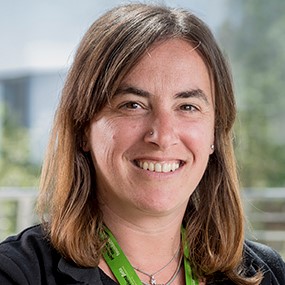
Digitally-enhanced Personalized Medicine: Accurate Selection of Subjective Cognitive Decline and Measuring Progression of Mild Cognitive Impairment
Presenter
Carolina Minguillón, PhD
Altoida
Dr. Carolina Minguillón in received her PhD in Genetics in 2002 and her MsC in Clinical Research and Project Management in 2015. After an extensive research career in the Developmental Biology field, Dr Minguillón undertook a Masters on Clinical Research and Project Management. She then joined the Barcelonaβeta Brain Research Center (BBRC), a research institution fully dedicated to research on Alzheimer’s disease prevention from a clinical, cognitive, genetic, and biomarker, including wet and neuroimaging, perspective. BBRC is composed of a multidisciplinary research team comprising experts in genetics, biomarkers, and neuropsychological evaluation, as well as the acquisition, analysis and processing of neuroimaging data.
At BBRC, Dr. Minguillón is the Head of the Research Management Office, in charge of the development and execution of research projects (from pre-award to post-execution stages) as well as design and strategic performance of research projects at BBRC.
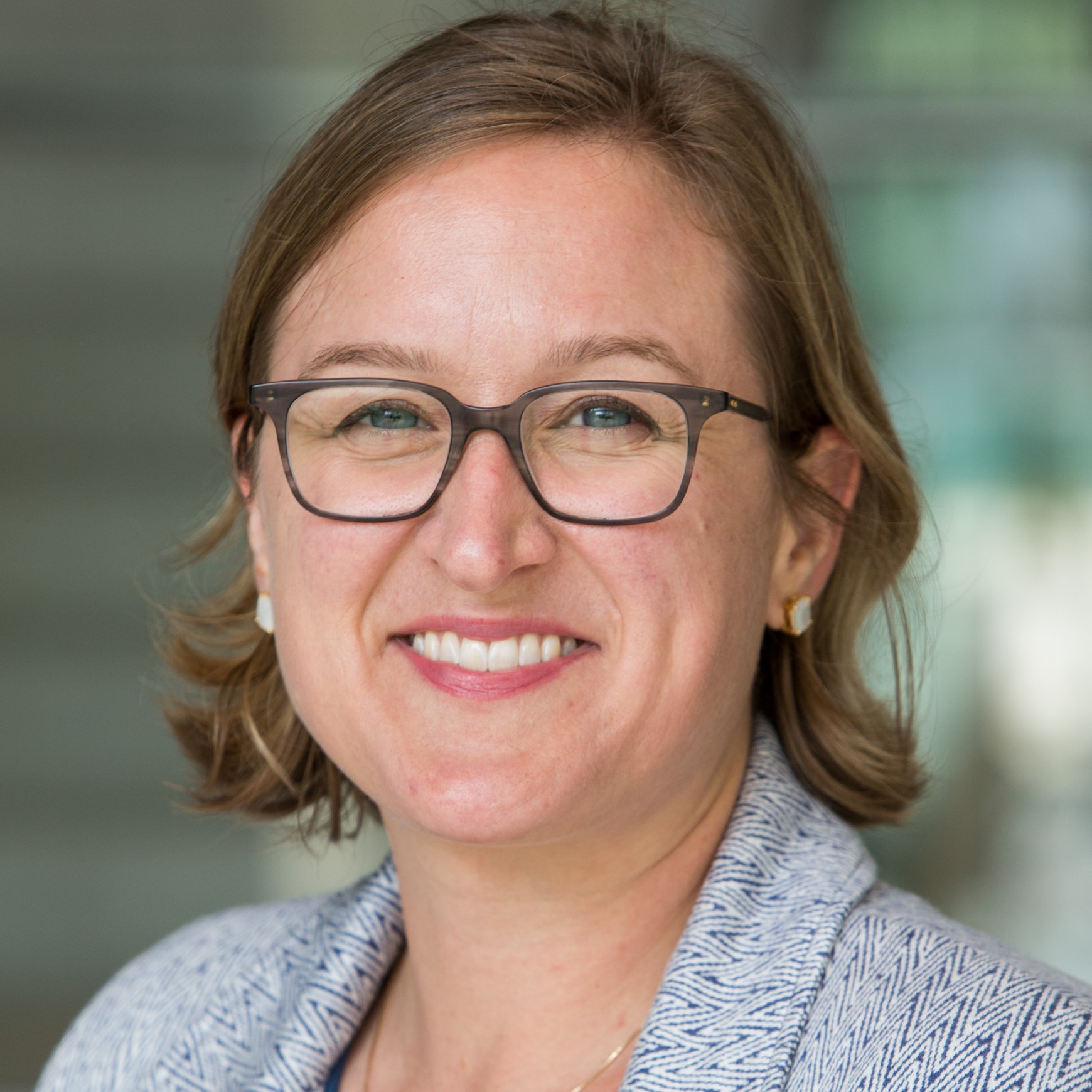
Blood Biomarker Monitoring in Frontotemporal Lobar Degeneration: Neurofilament Surveillance Project (NSP)
Presenter
Laura Mitic, PhD
Bluefield Project to Cure FTD
Dr. Laura Mitic is the Chief Scientific Officer at the Bluefield Project to Cure Frontotemporal Dementia (FTD), a nonprofit research organization dedicated to finding a treatment for FTD caused by mutations in the progranulin gene. She works closely with scientists in the Bluefield Research Consortium to identify and accelerate promising ideas and also leads Bluefield’s efforts to support the development of biomarkers and clinical endpoints for FTD. Dr. Mitic also serves on the management committee of the FTD Disorders Registry.
Dr. Mitic obtained her PhD from Yale University and completed her postdoctoral studies in the genetics of aging at UCSF.
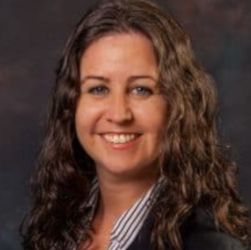
Novel Platform for On-Chip Detection of Neuronal Extracellular Vesicle-Bound Peripheral Biomarkers for Alzheimer’s Disease and Other Dementias
Presenter
Amber Murray, PhD
Biological Dynamics
Dr. Amber Murray has over 15 years of R&D experience, with a focus on IVD sample collection devices and blood-based diagnostics. She has spearheaded the development and launch of a suite of CE-IVD sample collection products which stabilize clinically relevant biomarkers in saliva and blood, including the LBgard® Blood Tube, the Salivagard® HT DNA saliva collection device, and the RNAgard® Blood Tube.
Dr. Murray’s work currently focuses on the development and validation of assays that rely on blood-based biomarkers, for use in diagnosis and monitoring/screening for Alzheimer’s Disease, tuberculosis, and various cancers.

Detecting Cognitive Impairment and Measuring Cognitive Change: Responding to Modern Challenges
Presenter
Jennifer Rae Myers, PhD, MS, CCC-SLP
Neurotrack
Dr. Jennifer Rae Myers is currently a Clinical Project Manager at Neurotrack with experience managing complex, multi-site clinical research projects over the past several years. As a speech-language pathologist and neuropsychologist for almost a decade, her background also includes working with various populations including those with Alzheimer’s disease and other neurogenic disorders. Much of Jennifer’s research has focused on the importance of comprehensive psycho-cognitive assessment and cultural considerations of standard-of care and research practices, which has garnered multiple publications and merit awards.
Jennifer’s education includes a BS in Communication Disorders from Bowling Green State University, a MS in Communication Sciences & Disorders with a medical specialization from Howard University, and a PhD in Neuropsychology from Howard University.
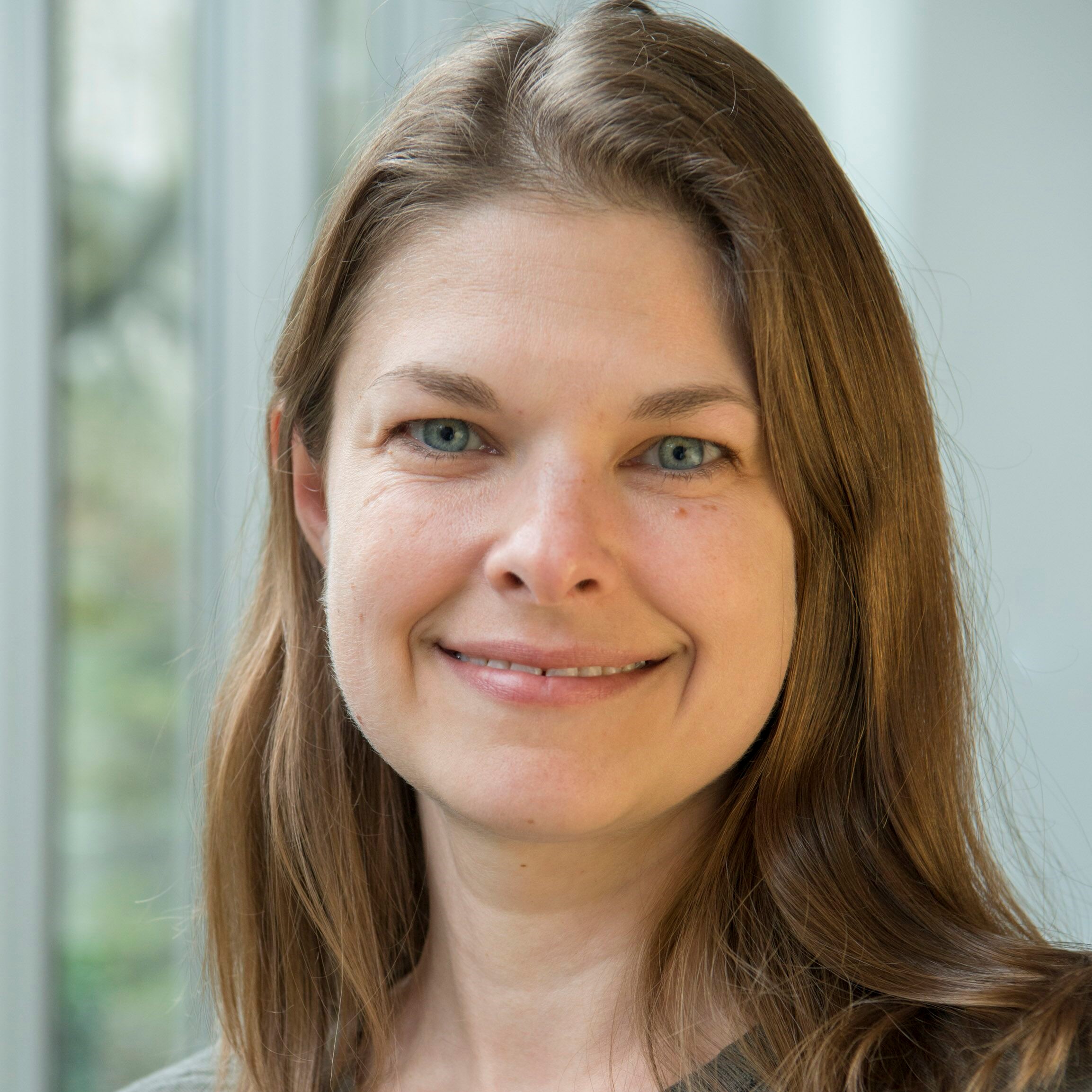
Studies on the Plasma Contact System in Alzheimer’s Disease
Presenter (with Dr. Sydney Strickland)
Erin Norris, PhD
The Rockefeller University
Dr. Erin Norris received her PhD in Pharmacological Sciences from the University of Pennsylvania. Her dissertation, which investigated post-translational modifications of alpha-synuclein protein and their effects on the pathogenesis of Parkinson’s disease and other synucleinopathies, was conducted under the mentorship of Dr. Virginia M.-Y. Lee.
After leaving Philadelphia, Dr. Norris began her postdoctoral work under the direction of Dr. Sidney Strickland in the Laboratory of Neurobiology & Genetics at The Rockefeller University in New York City. She initially studied the role of tissue plasminogen activator (tPA) – the clot-busting enzyme that can be beneficial in the event of a heart attack or ischemic stroke – in anxiety, drug addiction, and fetal alcohol syndrome. Over the years, her focus shifted to exploring the effects of vascular dysfunction in Alzheimer’s disease pathogenesis and pathophysiology.
Dr. Norris began running her own independent research group and was promoted to Research Assistant Professor at Rockefeller. She received the Biochemical Journal’s Young Investigator’s Award in 2005 and a career development award from the American Heart Association in 2014. She also served as Visiting Assistant Professor of Biology at Bard College in 2017.
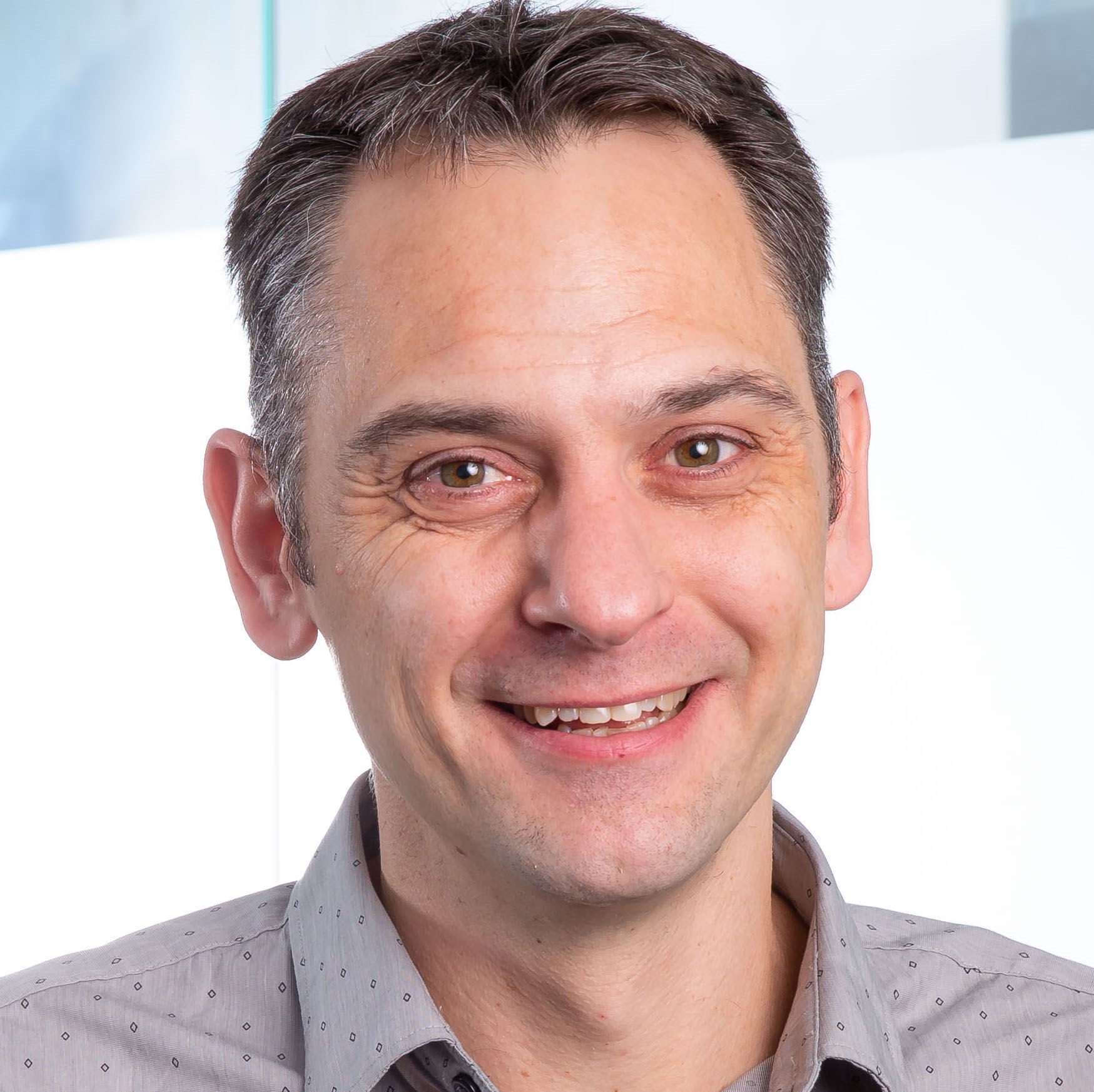
Threats to Digital Biomarkers and how Data Sharing Can Help
Presenter
Larsson Omberg, PhD
Sage Bionetworks
Dr. Larsson Omberg is VP, Systems Biology at Sage Bionetworks. His research effort focuses on two areas – using remote sensors and mobile phones to measure disease; and collaborative genomic research. Currently his group focuses heavily on open and team-based science to get a large number of external partners to collaborate on data intensive problems. This includes establishing norms and benchmarking methods for measuring disease phenotypes using remote sensors and developing analytical approaches for turning raw signals from sensors into digital biomarkers.
Dr Omberg and the Systems Biology group have been involved in over two dozen mobile health studies ranging from Chronic Anemia to Parkinson’s Disease to cardiorespiratory fitness. As a graduate student and postdoctoral researcher at the University of Texas and Cornell University, Dr Omberg developed machine learning and statistical approaches for extracting genomic phenotypes and disease signals from system level biological data. After establishing a data science group at Sage Bionetworks his expertise was applied to coordinating data integration and integrative analysis for the TCGA Pancancer collaboration, The Progenitor Cell Biology Consortium as well as the international ICGC/TCGA Whole Genome Pan-Cancer Analysis among other projects.
Dr Omberg received a PhD in physics from the University of Texas at Austin.

Aptamarker Diagnosis of Alzheimer’s Risk Factor in Blood
Presenter
Gregory Penner, PhD
NeoNeuro
Dr. Gregory Penner has expertise and passion for the integration of mathematics in biology and driving innovation to commercial reality. Dr. Penner’s led the first application of linked genetic markers to crop breeding with the development of low cadmium uptake in durum wheat. His training in crops and subsequent involvement in deep data management as global wheat genomics leader at Monsanto brings a very different perspective to the development of health care solutions. This perspective is based on an understanding of the strengths and weaknesses of deep data applications for the development of diagnostic platforms.
He has demonstrated creativity and leadership in a wide variety of positions, starting with his role in building the cereal biotechnology effort within Agriculture Canada, where he became recognized as a world leader in crop molecular breeding. This was recognized by Monsanto Inc. who employed him to lead their global wheat genomics program and then to lead the integration between research discovery for soybean yield globally. In this role he developed patent positions that revolutionized trait protection for transgenes in crops. He applied this experience to the successful development of his own company, NeoVentures Biotechnology, driving it through research innovation to become a market leader in aptamer development and application in health care.
NeoVentures was the first to commercialize an aptamer based diagnostic. Recently he has led the development of a spin-off company NeoNeuro in Paris, focused on the Aptamarker platform, a novel deep data method for mapping all molecules in blood. Throughout all of this, he has remained committed to the application of mathematical modelling as a basis for experimentation and product development.

PROGRAM COMMITTEE MEMBER
Shobha Purushothama, PhD
Alzheimer’s Drug Discovery Foundation
Dr. Shobha Purushothama is c
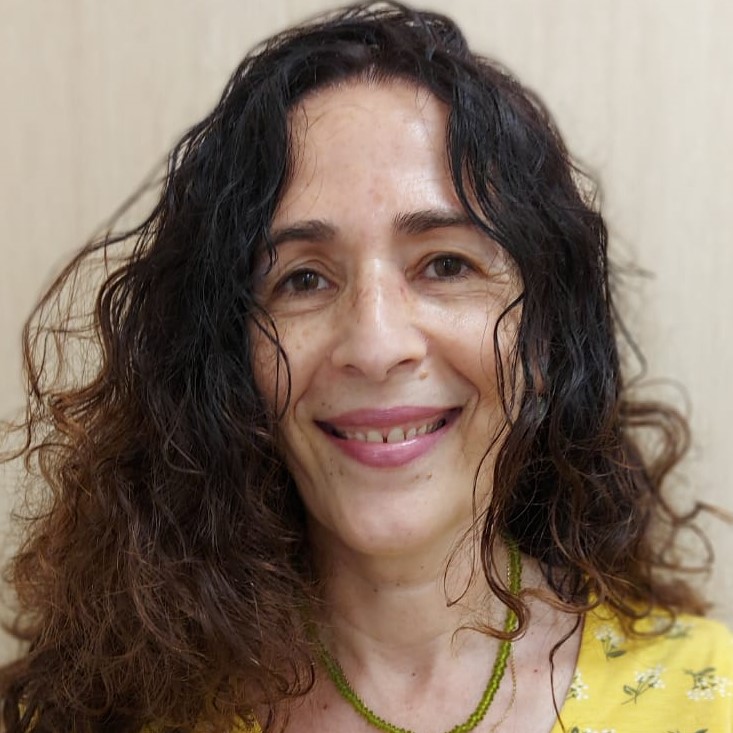
Novel Virtual Reality Method to Distinguish Apathy from Depression in the Context of Dementia
Presenter
Ramit Ravona-Springer, MD
Sheba Medical Center
Dr. Ramit Ravona-Springer is a geriatric psychiatrist involved in treatment and research in the field of old age cognition, risk factors and mechanisms associated with cognitive deterioration, old age depression and dementia. Since 1998, she has been actively involved in planning, designing, establishing of the infrastructure, recruiting and training of personnel and supervising data collection and data entry of large longitudinal studies aimed at characterizing risk factors for cognitive and affective deterioration and conversion to dementia of cognitively normal populations at risk. Two such studies follow populations at risk for dementia: offspring of Alzheimer’s disease patients and elderly subjects with type 2 diabetes (Israel Diabetes and Cognitive Decline – IDCD study).
Dr. Ravona-Springer serves as Director of Geriatric Psychiatry and Memory Clinic at the Sheba Medical Center. She had obtained her medical degree in 1993 from the Tel Aviv University and is Board Certified in Psychiatry.
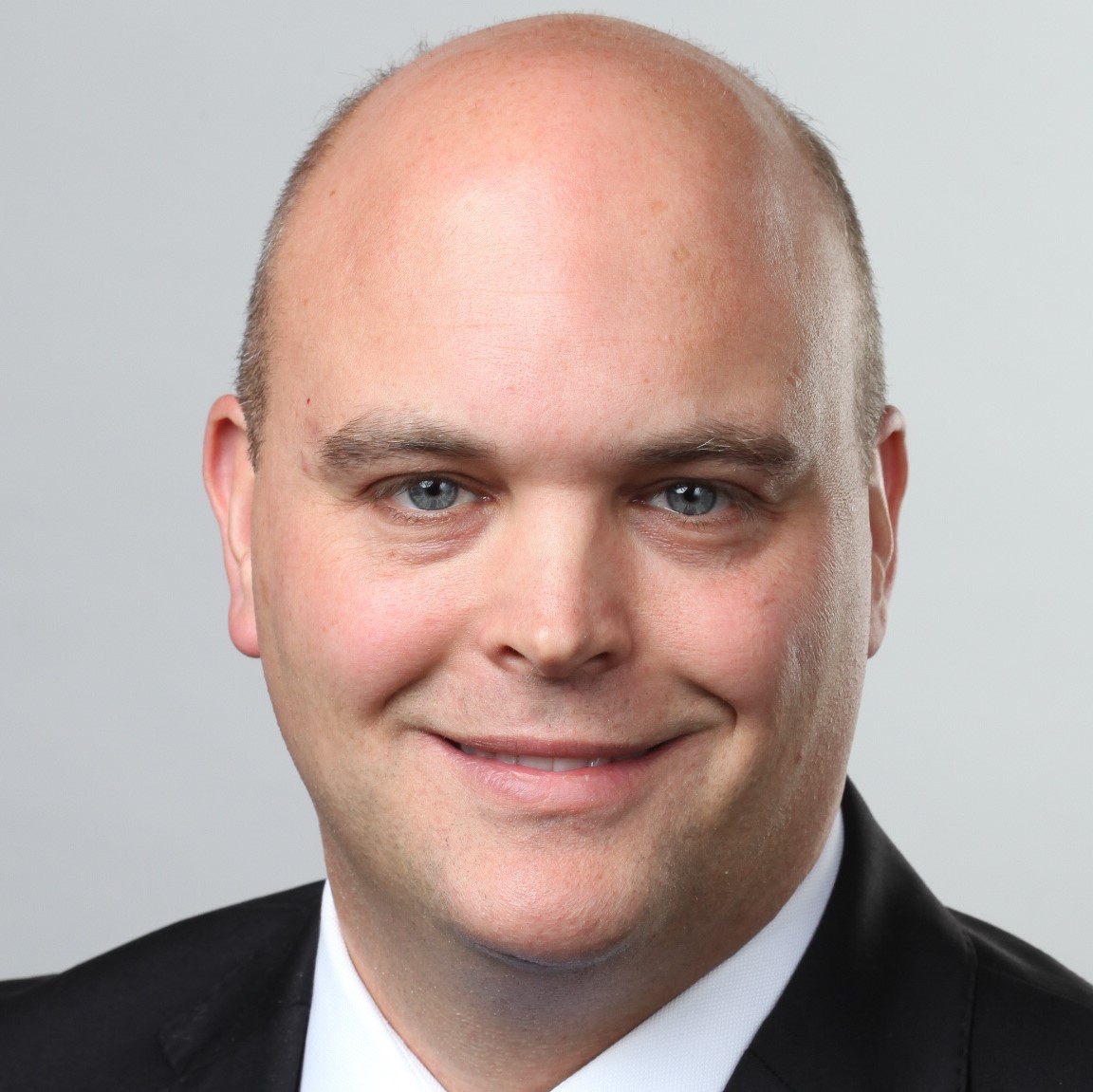
Validation of Blood-based Biomarkers for the Detection of Brain Amyloid Accumulation before Clinical Onset of Dementia
Presenter
Blaine Roberts, PhD
Emory University
Dr. Blaine Roberts is an Associate Professor at Emory University. He obtained his Bachelor of Science in Chemistry at Montana State University and his PhD in Biochemistry and Biophysics from Oregon State University.
His research group focuses on using protein biochemistry and mass spectrometry to understand Alzheimer’s disease, Parkinson’s disease and amyotrophic lateral sclerosis. He has interest in understanding the role of metals in biology and has developed new proteomic technologies to measure metalloproteins. Further, his group is using proteomics to characterize new blood borne biomarkers for Alzheimer’s and Parkinson’s disease.
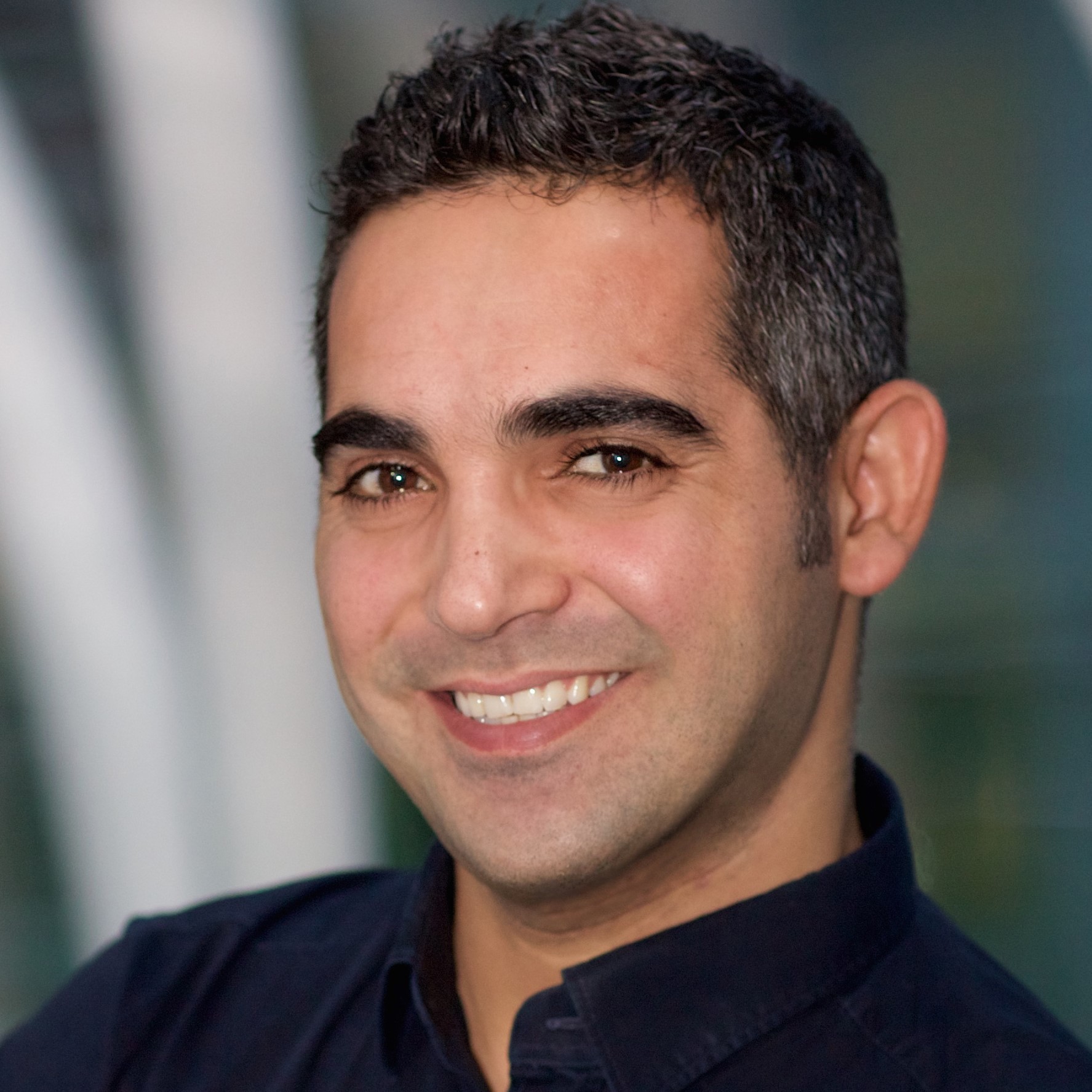
Findings from the RetiSpec Hyperspectral Imaging System in Individuals with Preclinical and Early Alzheimer’s Disease: A Preliminary Report
Presenter (with Dr. Catherine Bornbaum)
Eliav Shaked, MS
RetiSpec
Eliav Shaked is the founder and CEO of RetiSpec, a Toronto-based medical imaging startup in the Alzheimer’s disease diagnostics field. RetiSpec’s mission is to enable widespread early detection of Alzheimer’s disease with accessible and scalable biomarker screening. Eliav is a trained biomedical engineer with nearly a decade of experience managing R&D projects, having led several medical products from ideation to launch.
He holds BSc and MSc degrees in Biomedical Engineering from Tel-Aviv University.
As an entrepreneur, Eliav has successfully led RetiSpec through two significant rounds of investment. Some of Eliav’s notable achievements with RetiSpec include: 2019 Capital Access Advisory Program (CAAP), 2018 NEXT Founders program, 2017 Ontario Neurotech ONtrepreneur, and winner of an international competition to be selected in the MassChallenge program in Boston, MA.
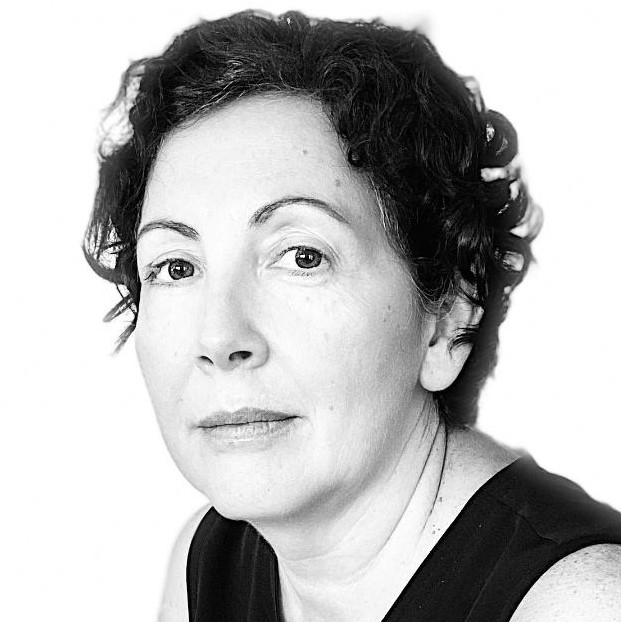
Circulating Brain-enriched microRNAs as Peripheral Biomarkers of Neurodegeneration
Presenter
Kira Sheinerman, PhD, MBA
DiamiR Biosciences
Dr. Kira Sheinerman is the co-founder and CEO of DiamiR. She is also a Managing Director, Investment Banking at H.C. Wainwright.
Dr. Sheinerman serves on the Board of Directors of the Boyce Thompson Institute, an affiliate of Cornell University, and as the senior strategic consultant to Aptorum Group (NASDAQ: APM). From October 2015 through December 2018, Dr. Sheinerman served as the co-chair of Alzheimer’s Association Business Consortium.
Dr. Sheinerman received her PhD in Biomedical Sciences from Mount Sinai School of Medicine for her work on molecular mechanisms of Alzheimer’s disease. Dr. Sheinerman also holds an Honors MBA from the Zicklin School of Business, Baruch College/CUNY.

SESSION III
Digital and Ocular Biomarkers
CO-CHAIR
Eric Siemers, MD
Siemers Integration LLC
Dr. Eric Siemers has performed clinical research in neurodegenerative disease for over 25 years. After completing his residency in the Department of Neurology at Indiana University in 1986, he founded and headed the Indiana University Movement Disorder Clinic. His research there included investigations of Parkinson’s disease and Huntington’s disease; he played a major role in one of the first studies of at-risk Huntington’s disease, and he established one of the first centers for surgical PD treatments in the US. In 1998, Dr. Siemers joined Eli Lilly and Company and rose to the rank of Distinguished Medical Fellow. While at Lilly, he first performed studies of investigational medications for Alzheimer’s disease in early phase clinical trials, and subsequently joined the late phase Alzheimer’s Disease Global Development Team. In this capacity Dr. Siemers was responsible for the design and implementation of 5 large phase 3 studies of AD sponsored by Lilly, in addition to playing a major collaborative role in 2 public-private partnerships.
Major research interests include the use of biomarkers in investigational drug research, the development of trial designs that fully characterize the effects of investigational drugs on chronic diseases, and more specifically the development of strategies for treating individuals before the onset of symptoms of neurodegenerative diseases.
Dr. Siemers was a founding member of the Alzheimer’s Association Research Roundtable which he chaired from 2014-2017. He has served as a member of the Steering Committee for the Alzheimer’s Disease Neuroimaging Initiative (ADNI), which is funded by the National Institute on Aging and a consortium of pharmaceutical companies and served as the chair of the Industry Scientific Advisory Board for ADNI in 2007. He is a past member of the Board of Directors of the American Society of Experimental Neurotherapeutics. Dr. Siemers participated as a member of the NIA/Alzheimer’s Association working group that proposed criteria for preclinical Alzheimer’s disease in 2011; he is a member of the subsequent working group that published a “Research Framework” for nomenclature using biomarkers and clinical symptoms for the entire Alzheimer’s disease continuum.
Dr. Siemers is currently a consultant for a variety of efforts regarding the development of therapeutics and diagnostics for neurodegenerative diseases.

Using Large Data Approaches to Diagnose and Drug Dementia
Presenter
Judith Steen, PhD
Boston Children’s Hospital
Dr. Judith Steen is an Associate Professor of Neurobiology at Harvard Medical School, a member of the Harvard Stem Cell Institute and the Director of the Neuroproteomics Laboratory in the F. M. Kirby Neuroscience Center at Boston Children’s Hospital.
Her laboratory works to understand neuro-regeneration and neurodegenerative diseases using systems biology approaches. The laboratory develops novel qualitative and quantitative methodologies at the interface of proteomics and transcriptomics with special emphasis on computational proteomics approaches. These novel quantitative methods and bioinformatics tools developed by the Steen Laboratory are being applied to understand the biology of regeneration and neurodegeneration in both mouse models, stem cells and human tissues, to find molecular targets for therapeutics, and to identify biomarkers of the neurodegenerative process. Further functional studies using biochemical, molecular and cell biology approaches are used to verify and understand the role of the targets and biomarkers in the context of injury and disease. The goal of this research is to use molecular information provided by our quantitative proteomics measurements in order to ameliorate neurodegeneration and promote regeneration.

Blood-Based miRNA Diagnostics of Alzheimer’s Disease
Presenter
Bruno Steinkraus, PhD
Hummingbird Diagnostics
Dr. Bruno Steinkraus serves as CSO of Hummingbird Diagnostics and leads an interdisciplinary research team, managing the company’s scientific discovery and technology development portfolio.
As an expert in miRNA biology, Dr. Steinkraus authored multiple scientific articles and reviews on miRNAs and developed technologies for unbiased miRNA target identification.
He completed his PhD at the Weatherall Institute of Molecular Medicine, University of Oxford, where he was an MRC scholar. During his undergraduate studies at Imperial College he worked on acetylcholine signaling where he received the Neuroscience Prize. Dr. Steinkraus’ expertise spans gene expression analysis from liquid biopsies, specifically PCR assay development as well as miRNA functional studies.
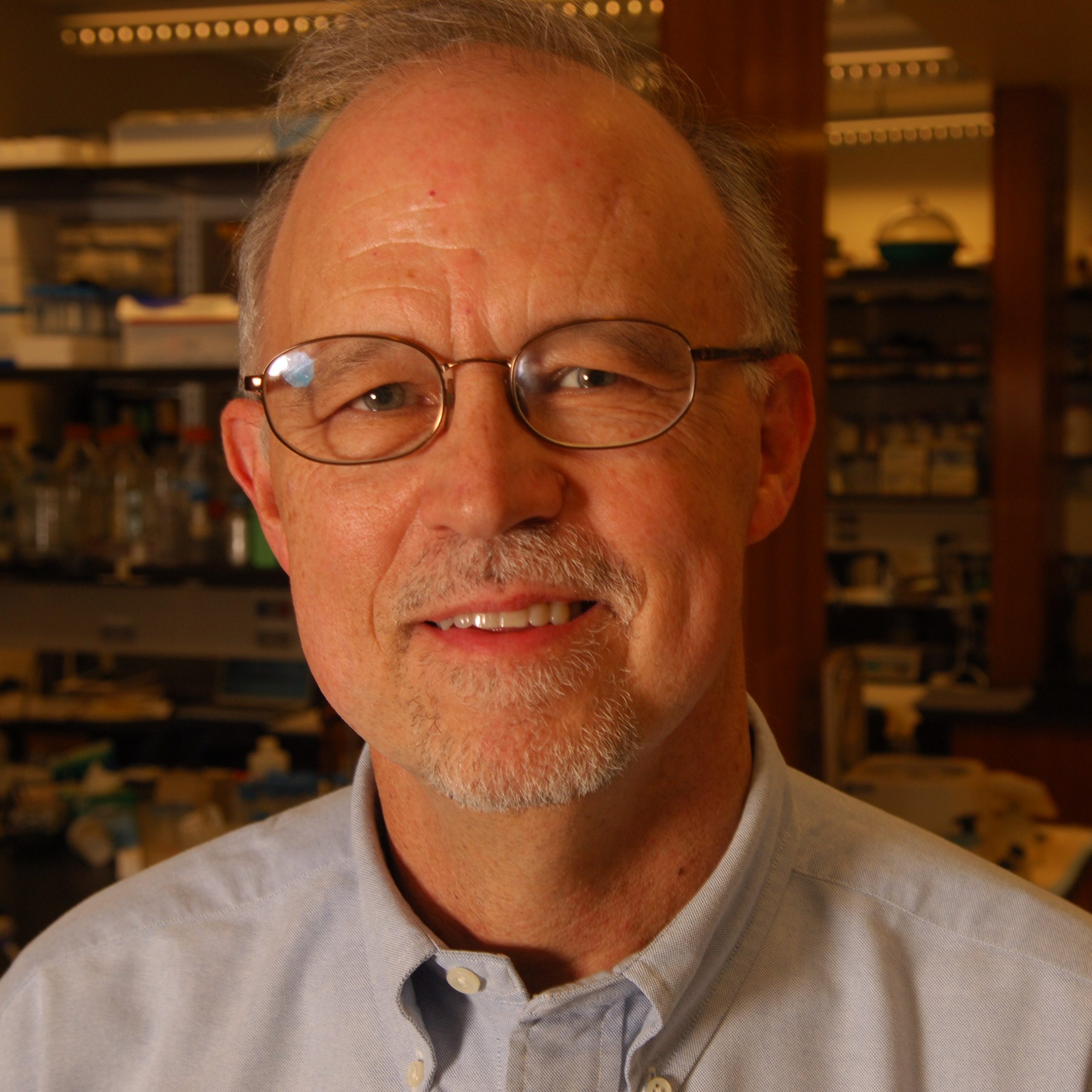
Studies on the Plasma Contact System in Alzheimer’s Disease
Presenter (with Dr. Erin Norris)
Sidney Strickland, PhD
The Rockefeller University
Dr. Sidney Strickland heads The Rockefeller University’s Patricia and John Rosenwald Laboratory of Neurobiology and Genetics, where he and his colleagues study the molecular mechanisms of nerve cell death and regeneration, with a special focus on Alzheimer’s disease. He also serves as dean and vice president for educational affairs at The Rockefeller University.
Dr. Strickland first came to Rockefeller University in 1973, after earning a B.S. from Rhodes College, in Memphis, and a Ph.D. in biochemistry from the University of Michigan. In 1983, he left to join the faculty of the State University of New York at Stony Brook. He returned to Rockefeller in 2000.
Today, in addition to conducting research, Dr. Strickland coordinates the University’s educational activities, including the David Rockefeller Graduate Program, the postdoctoral program, and a range of outreach initiatives involving high school students, undergraduates, and primary- and secondary-school teachers.
Dr. Strickland has received numerous prizes for his work including a John Simon Guggenheim Fellowship; the International Society for Fibrinolysis and Proteolysis Prize; an Innovative Research Award from the Alzheimer’s Drug Discovery Foundation & Elan Pharmaceuticals; and a Zenith award from the Alzheimer’s Association. He received an honorary doctor of science degree in 2006 from his alma mater, Rhodes College.

A Retinal Imaging Biomarker of Alzheimer’s Disease
Presenter
Peter Van Wijngaarden,
Center for Eye Research Australia
Dr. Peter van Wijngaarden is an ophthalmologist and medical scientist with research interests in Alzheimer’s disease and retinal imaging biomarker discovery. He is Deputy Director of the Centre for Eye Research Australia and Associate Professor of Ophthalmology at the University of Melbourne.
After completing Medicine at Monash University (1999 dux), Peter moved to the Department of Ophthalmology at Flinders University, South Australia to complete his PhD in the field of retinal vascular biology. He pursued ophthalmology training in Victoria (College medalist) before undertaking a post-doctoral research fellowship (NHMRC fellow) at the University of Cambridge, UK. He developed experience in regeneration of the central nervous system in multiple sclerosis, working under Professor Robin Franklin.
Returning to CERA in 2013, Peter’s research focuses on three key areas: novel imaging technologies to detect early markers of eye and central nervous system diseases, such as Alzheimer’s disease; understanding the role played by support cells in the optic nerve and the implications that this has for the management of diseases of the optic nerve; and understanding the causes of diabetic retinopathy and identifying new avenues for treatment.
He is a Clinical Director and a founding member of Preserve Sight – a Commonwealth Government-funded national approach to diabetic retinopathy screening in Australia. Peter is also a member of the medical and research committees of the Macular Disease Foundation Australia and is the Royal Australia and New Zealand College of Ophthalmologists’ representative on the Vision 2020 Vision Initiative, a public health program seeking to reduce avoidable blindness in Victoria.

Machine Learning Technologies for Advancing Digital Biomarkers for Alzheimer's Disease
Presenter
Guoliang Xing, DSc
The Chinese University of Hong Kong
Dr. Guoliang Xing is currently a Professor of Information Engineering at The Chinese University of Hong Kong. Previously, he was a faculty member at Michigan State University. He received the D.Sc. degree from Washington University in St. Louis, in 2006.
Dr. Xing received two Best Paper Awards and six Best Paper Nominations at leading international conferences. His research interests include Internet of Things (IoT), Smart Health, Cyber-Physical Systems, security, and wireless networking. He has led several multi-disciplinary research projects on smart health systems for activity recognition, family wellness, and sleep/breathing monitoring. Several mobile health technologies developed in his lab won Best App Awards at the MobiCom conference and were successfully transferred to the industry. He received the U.S. NSF CAREER Award in 2010 and the Withrow Distinguished Faculty Award from Michigan State University in 2014. He has published 150+ papers which have been cited for 9,000+.
Dr. Xing is a Fellow of IEEE (Institute of Electrical and Electronics Engineers), the world’s largest technical professional organization for electronic engineering and electrical engineering.

Fully Automated Plasma Assays as Screening Tests for Alzheimer-related Amyloid Beta Pathology
Presenter
Henrik Zetterberg, MD, PhD
University of Gothenburg
Dr. Henrik Zetterberg is a Professor of Neurochemistry at the University of Gothenburg, Sweden, and University College London, UK, and a Clinical Chemist at Sahlgrenska University Hospital in Gothenburg. He is Head of the Department of Psychiatry and Neurochemistry at the University of Gothenburg and leads the UK DRI Fluid Biomarker Laboratory at UCL.
Dr. Zetterberg’s main research focus and clinical interest are fluid biomarkers for central nervous system diseases, Alzheimer’s disease in particular. He has published more than 1200 papers and has received numerous awards.

Plasma Aβ as a Predictor of Amyloid Positivity in Alzheimer’s Disease
Presenter (with Wesley Horton)
Stephen Zicha, PhD
Foundation for the National Institutes of Health
Dr. Stephen Zicha is the Senior Director of Neuroscience Translational Medicine at Takeda Pharmaceuticals, leading the discovery and development of molecular biomarkers to support the progress of novel treatments for neurological diseases.
Prior to Takeda, Dr. Zicha has over 15 years of experience in drug discovery and translational sciences at AstraZeneca and Quartet Medicine. He earned his BSc and PhD degrees from McGill University (Montreal, Canada) before joining AstraZeneca. During his career in the biotech and pharmaceutical industry, Stephen’s research has focused on multiple neurological and neuropsychiatric diseases such as ALS, Parkinson’s disease, Alzheimer’s disease, chronic pain, Huntington’s disease, and other rare neurological diseases.
